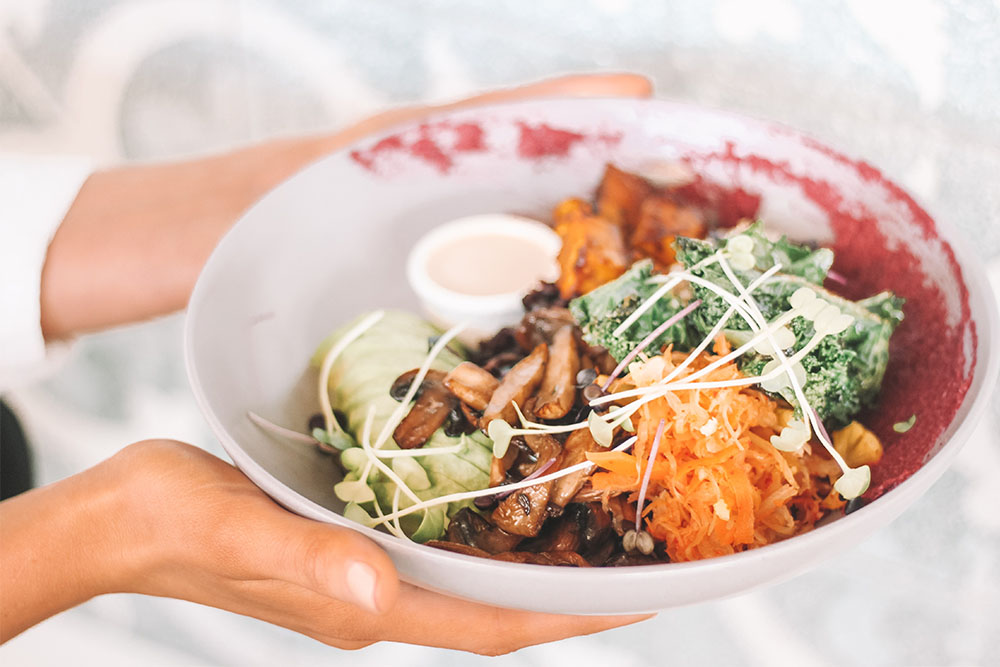Gene-Based Nutrition: Can It Benefit You?

Evan Stevens
Based on a talk by Lisa Cianfrini at Take Control of Your Health/Wellness – Exercise Nutrition Symposium, University of Western Ontario
If you have been following my How to Eat series on Fast Twitch Grandma, you’ll be familiar with the concepts that Ms. Cianfrini presented. This personalized approach to health is getting to the point where we now have measureable and meaningful tools to do it. Ms. Cianfrini presented information about Nutrigenomix, a new company that offers genetic test kits to see what genes you have and how they interact with specific stimuli – exercise and nutrition. She stressed the point that it is a cyclical pattern, that is, diet can change gene presentation, but genes can change what we eat. Genes not only have the potential to dictate what we eat, but how much we eat as well, as genes affect our sense of smell and taste, our perception of fat, how quickly we metabolize energy, and they can contribute to appetite control. They dictate the distribution of nutrients in the body which is a contributing factor to why two people can eat the same foods, do the same exercises but have different outcomes.
To help illustrate the point Ms. Cianfrini used the example of coffee intake and the risk of heart attack. She showed that depending on what genotype you are, drinking more or less coffee significantly altered your risk of heart attack. Fast metabolizers of caffeine benefited from drinking 2-3 cups of coffee per day. Slow metabolizers however were at an increased risk for heart attacks if they were to drink the same amount. These genotype differences are also the reason why we can see such varying differences in nutrition studies – many researchers fail to account for specific genes and how they contribute to the research outcomes. This is why we see so many diet books – some people thrive under high protein diets because they have specific genes to do so, gluten-free works for people with celiac because they have a specific genotype (Ms. Cianfrini also mentioned that if you are not of the celiac genotype, your gluten-sensitivity may be all in your head). The Nutrigenomix test also could show your exercise genes – types of exercise and desire to perform exercise. The ability to make nutrition and lifestyle choices based on your genetics will only serve to inform you and enable you to make better choices which will improve your health. Getting the test right now isn’t too difficult but you will need a referral from either a physician or a registered dietitian. It costs a little less than $400.
If you have been following the “What to Eat” series on FTG, you will remember that in Part Three, we brought up concerns of genetic testing and privacy. More and more stories are coming out of insurance companies not covering or dropping coverage after a person receives their genetic test and finds out they are at an increased risk of developing certain diseases. While I was unable to speak with Ms. Cianfrini about the topic at the conference, I am trying to follow-up with her to see how this is handled. For being a Canadian company it is very important that privacy of patients is handled with care because Canada is the only G7 nation that does not protect people from losing their jobs or health insurance because of information in their DNA.
Take Aways:
1. Nutrition and genes interact and influence each other
2. Certain genes can increase or decrease risk of disease when eating certain foods
3. Genetic testing available – inform on what genes you have and what foods you should eat
4. Informed lifestyle choices leads to maximized personal health
Related Article: Powerhouse Fruits and Vegetables | Thoughts on Nutrition: Chronic Disease and Nutrient Density










